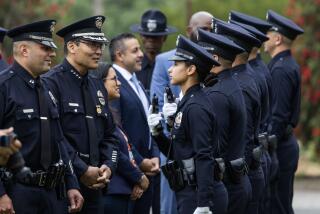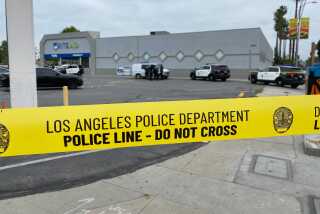Phone Calls Take Too Much Police Time, Study Says
WASHINGTON — The proliferation of 911 emergency lines is turning many of the nation’s police departments into dial-a-cop operations that devote too much manpower to responding to calls and not enough to devising ways to reduce crime, a study prepared for the Justice Department said Sunday.
“With the recent growth of 911 systems and the steady increase in the number of calls to police, a virtual coup d’etat has taken over American policing,” wrote Lawrence W. Sherman, a University of Maryland professor.
“Gradually, with little public notice, police managers have lost control over how police spend their time. The usurper is the telephone and a common policy that requires all calls to be answered rapidly,” he said.
Sherman drew his conclusions after analyzing the 321,174 calls received by the Minneapolis Police Department between Dec. 15, 1985, and Dec. 15, 1986.
He found that just 5% of the city’s locations--addresses and street intersections--produced 64% of all calls to police. And a fraction of 1% of the locations generated 25% of the robbery calls.
The busiest locations in the city were, in order, a large discount department store, a large department store, a 24-hour convenience store, public housing apartments and another discount store.
Most cities require police to respond to all calls quickly, even though not all calls are equally important, he said. In Minneapolis, 5% of the calls were from people locked out of their cars, 4% were noise complaints, 2.5% were for parking and 1% were for shoplifters who had already been stopped.
More to Read
Sign up for Essential California
The most important California stories and recommendations in your inbox every morning.
You may occasionally receive promotional content from the Los Angeles Times.









